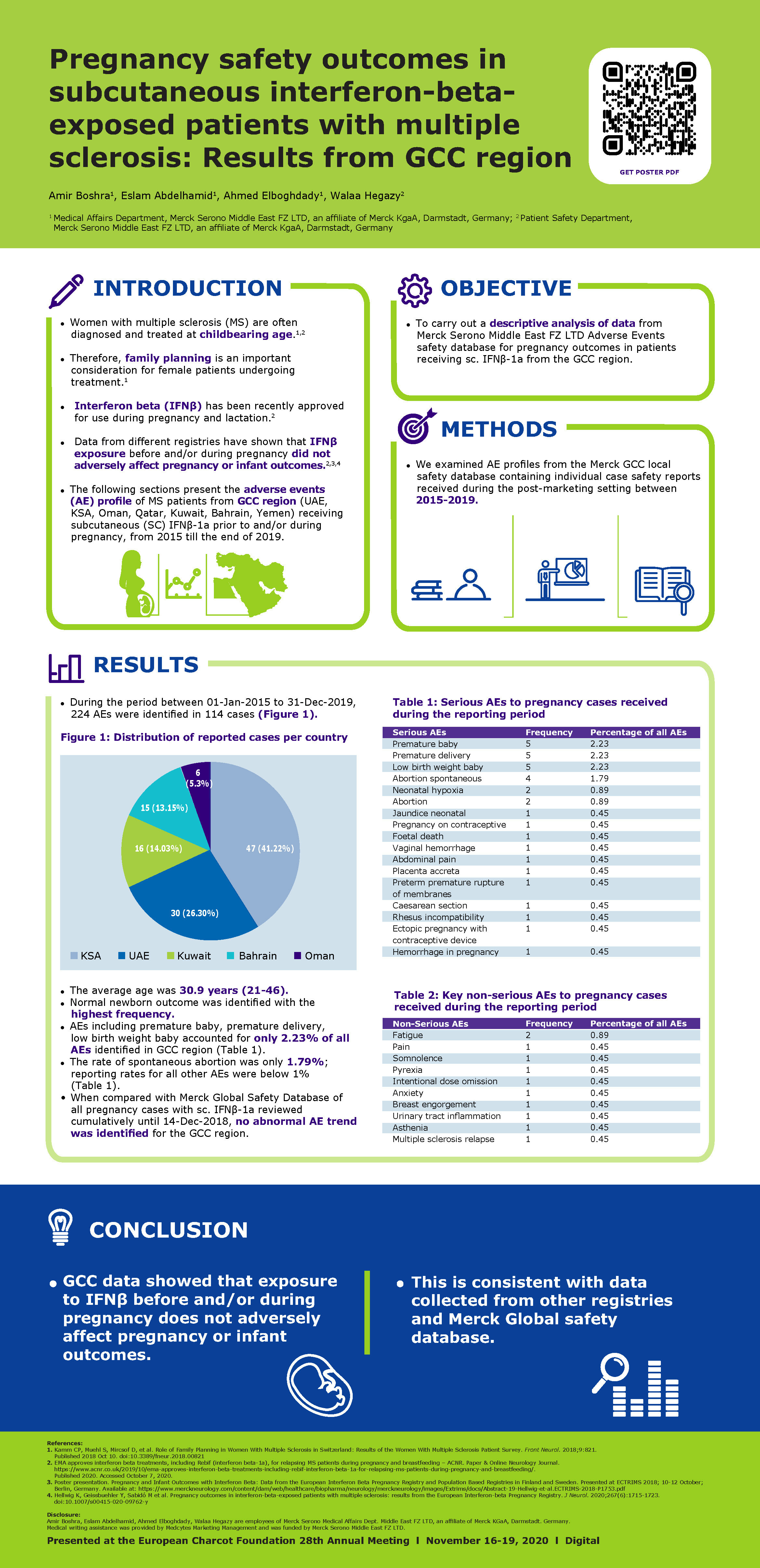Pregnancy safety outcomes in subcutaneous interferon-beta-exposed patients with multiple sclerosis: Results from GCC region
Abstract
Background:
Women with multiple sclerosis (MS) are often diagnosed and treated at childbearing age. Therefore, family planning is an important consideration for female patients undergoing treatment. Interferon beta (IFNβ) has been recently approved for use during pregnancy and lactation. Data from different registries have shown that IFNβ exposure before and/or during pregnancy did not adversely affect pregnancy or infant outcomes.
We present the adverse events (AE) profile of MS patients from GCC region (UAE, KSA, Oman, Qatar, Kuwait, Bahrain, Yemen) receiving subcutaneous (SC) IFNβ prior to and/or during pregnancy, from 2015 till the end of 2019.
Objective:
To carry out a descriptive analysis of data from Merck Serono Middle East FZ LTD GCC AE safety database for pregnancy outcomes in patients receiving Rebif (sc. IFNβ).
Methods:
We examined adverse event profiles from the Merck GCC local safety database containing individual case safety reports received during the post-marketing setting between 2015-2019.
Results:
During the period between 01-Jan-2015 to 31-Dec-2019, 224 AEs were identified in 114 cases, majority of which were non-serious (83.9%). The average age was 30.9 years (21-46). Normal newborn outcome was identified with the highest frequency. Most frequently reported AEs (premature baby/premature delivery/low birth weight baby) accounted for only 2.23% of all AEs identified in GCC region. The rate of spontaneous abortion was only 1.79%; reporting rates for all other AEs were below 1%. When compared with the global analysis of all pregnancy cases reviewed cumulatively until 14-Dec-2018, no abnormal AE trend was identified for the GCC regions. Only 2 non-serious cases were identified; no clinical events were identified in the reporting period.
Conclusion:
GCC data showed no evidence that exposure to IFNβ before and/or during pregnancy adversely affected pregnancy or infant outcomes. This is consistent with data collected from other registries and Merck Global safety database.

